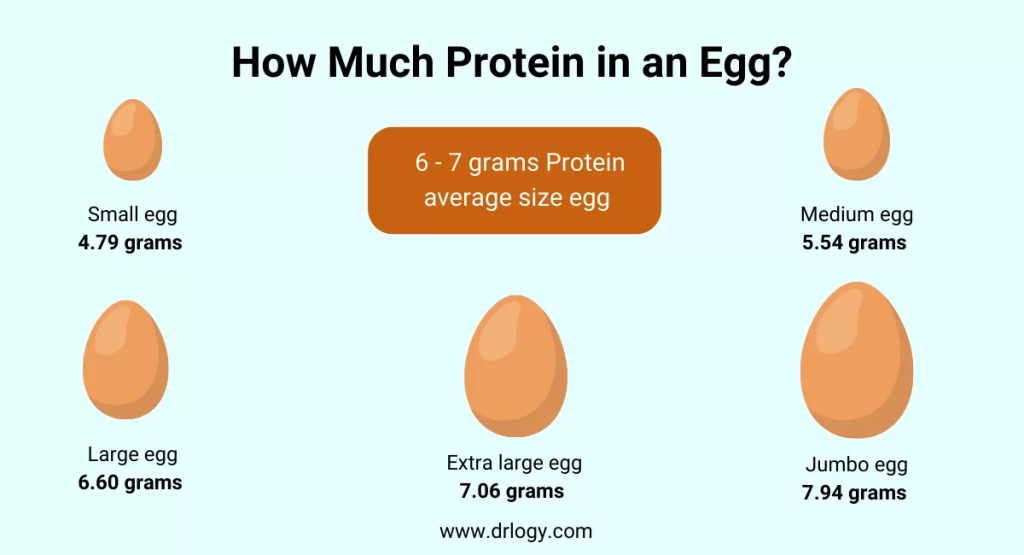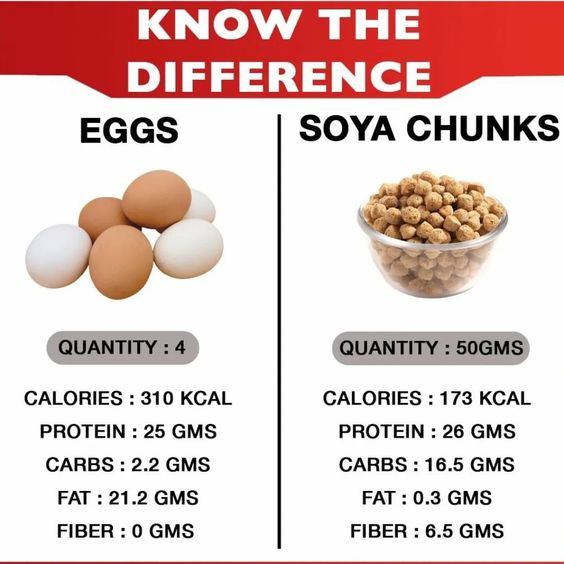How Many Eggs to Get 30 Grams of Protein
To attain 30 grams of protein from eggs, you would typically need to consume approximately five large eggs. Each large egg contains around 6 grams of protein, making it a convenient and efficient source of this essential nutrient. However, it’s important to consider individual dietary needs and preferences, as well as any health concerns related to cholesterol intake associated with consuming multiple eggs. Balancing egg consumption with other protein sources and incorporating a variety of foods into your diet ensures a well-rounded nutritional intake.
Nutritional Value of Eggs
Eggs are nutritional powerhouses, packed with vitamins, minerals, and high-quality protein. A single large egg contains approximately 6 grams of protein, making it an excellent choice for those looking to boost their protein intake. Also, read about What is a quick protein
Recommended Protein Intake
Before determining the number of eggs needed to achieve 30 grams of protein, it’s essential to understand your daily protein requirements. The Recommended Dietary Allowance (RDA) for protein is around 0.8 grams per kilogram of body weight for the average adult.
Calculating Protein Content in Eggs
With each large egg containing approximately 6 grams of protein, simple math can help us determine how many eggs are needed to reach the desired protein goal. To obtain 30 grams of protein, one would need roughly 5 large eggs.
Health Benefits of Eggs
In addition to being a rich source of protein, eggs offer numerous health benefits. They are loaded with antioxidants, such as lutein and zeaxanthin, which promote eye health. Eggs also contain choline, an essential nutrient for brain function.

Protein Comparison with Other Foods
While eggs are an excellent source of protein, it’s essential to compare them with other protein-rich foods. In terms of protein content per serving, eggs rival foods like chicken breast and Greek yogurt, making them a versatile option for meeting your protein needs.
Cooking Eggs for Optimal Protein Intake
How you prepare eggs can impact their protein content. While boiling or poaching eggs preserves their protein content, frying eggs in oil can add unnecessary calories and fat. Opt for healthier cooking methods to maximize the protein benefits of eggs. Discover more about What Muscles Does Jump Rope Work
Incorporating Eggs into Daily Diet
There are countless ways to incorporate eggs into your daily diet. From scrambled eggs for breakfast to egg salad sandwiches for lunch, the possibilities are endless. Experiment with different recipes to find delicious ways to enjoy eggs while meeting your protein goals.
Protein Intake for Different Lifestyles
The amount of protein needed varies depending on factors such as age, sex, activity level, and overall health status. Athletes and individuals engaged in intense physical activity may require higher protein intake to support muscle repair and growth.
Common Myths About Eggs and Protein
Despite their nutritional value, eggs have often been subject to misconceptions, such as their alleged negative impact on cholesterol levels. However, research has shown that moderate egg consumption is not associated with an increased risk of heart disease in healthy individuals.

Varieties of Eggs and Protein Content
It’s essential to note that not all eggs are created equal. While conventional eggs offer substantial protein content, specialty eggs such as omega-3 enriched or pasture-raised eggs may contain higher levels of certain nutrients, including protein.
Recipes to Increase Protein Intake
For those looking to boost their protein intake, incorporating eggs into meals is a simple and delicious solution. From protein-packed omelets to veggie-loaded frittatas, there are endless recipe options to suit every taste preference.
Protein Supplements vs. Natural Sources
While protein supplements can be convenient, they should not replace whole food sources of protein like eggs. Whole foods offer a broader spectrum of nutrients and are generally more satiating, making them a preferable option for long-term health and wellness.
Safety Concerns and Considerations
When consuming eggs, it’s essential to handle and cook them properly to reduce the risk of foodborne illness. Avoid consuming raw or undercooked eggs, especially if you have a compromised immune system or are pregnant.

Conclusion
In conclusion, eggs are a nutritious and versatile source of protein that can easily be incorporated into a balanced diet. Whether you’re aiming to build muscle, support overall health, or simply enjoy delicious meals, eggs offer a convenient and affordable way to meet your protein needs.
FAQs
Are eggs a complete source of protein?
Yes, eggs are considered a complete protein source as they contain all nine essential amino acids required by the body.
Can I eat eggs every day?
Yes, moderate egg consumption is safe for most individuals and can be part of a healthy diet when consumed as part of a varied and balanced meal plan.
Are brown eggs healthier than white eggs?
No, the color of an egg’s shell does not affect its nutritional value. Both brown and white eggs offer similar protein content and nutrient profiles.
Is it safe to eat raw eggs?
Consuming raw or undercooked eggs poses a risk of foodborne illness, particularly from bacteria like Salmonella. It’s best to cook eggs thoroughly before consuming them.
How should eggs be stored to maintain freshness?
Eggs should be stored in the refrigerator at 40°F (4°C) or below to maintain freshness and prevent bacterial growth. Store eggs in their original carton to protect them from absorbing odors and flavors from other foods.

Hi I’m Julie. Meet the talented fashion designer with three years of industry experience— the creative force behind urbansoutfitter.com. As the author of this stylish haven, they bring a fresh and innovative perspective to the forefront of fashion discussions.

